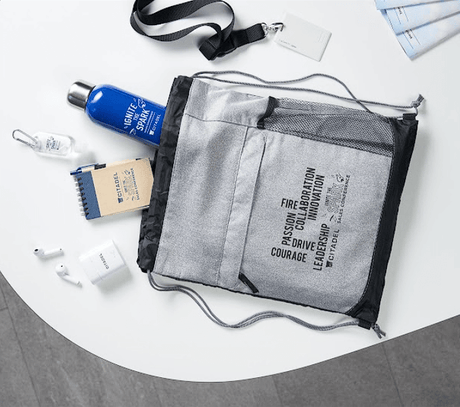G
ift-giving has a variety of different domains, one of which
is pharmaceutical. Pharmaceutical companies use both
financial and nonfinancial inducements. Pharmaceutical gifts
and giveaways come in many different forms. They can be
anywhere from a pen with a company logo, to promotional
items, drug samples, and even personal gifts or invitations
to special events. According to an article, any sort of
gift, of any size creates a social obligation for a person
to respond accordingly. In terms of medicine, physicians
would respond to these gifts by supporting the
pharmaceutical company and its products. The aim of gifting
in the pharmaceutical industry is to help promote
pharmaceutical products or the company itself. The
pharmaceutical industry in the U.S. is one of the most
profitable industries, and about 84% of marketing from
pharmaceutical companies is directed towards physicians.
Drug prices have also been rising drastically in the recent
years. Marketing in pharmaceutical industry is mainly directed
at physicians because they are the ‘gatekeepers’ to drug
sales. Doctors’ behaviours and judgement are often,
therefore, heavily influenced by these pharmaceutical
companies, a phenomenon that underscores the impact of pharma industry corporate giving.
Are you looking for the perfect gift? Watch Our TED
Talk!

The Influence of Pharmaceutical Gifts on Physicians’
Practice
In some cases, physicians may also be hired by the
pharmaceutical company to give talks or promote the
pharmaceutical products. They are usually accompanied by
drug reps and in return may receive invitations to special
events or dinners, etc. This helps pharmaceutical companies
become more well-known and encourages growth by encouraging
doctors to write more prescriptions for their drugs.
According to a Journal of the American Medical Association
from 2000, when doctors are given free samples, they are
more likely to prescribe that drug and have led to doctors
requesting for these specific drugs to be placed on
formularies. Even sponsored trips and events influenced
doctors to write more prescriptions of the drugs
accordingly. Specifically, these events have resulted in an
increase of 80-190% in drug prescriptions by doctors. When
invited to dinners sponsored by pharmaceutical companies,
doctors were also two to three times more likely to request
that the drugs be placed on formularies from the hospital.
To effectively select which doctors to use for these
enticements, drug reps assess the physicians preferences,
practice and personality to see how they can influence their
prescribing methods and select the right candidate for their
gifting. To gain doctors’ trust, drug reps appear as
cheerful, genuine friends and may provide unreliable
information. The admirable attitude and persona created by
drug reps helps influence doctors’ decisions and create a
good first impression, as they spend the day around their
distressed patients. Physicians are generally more
influenced by the marketing techniques of the pharmaceutical
industry than by the effectiveness of the drugs they promote
themselves. They also tend to have a hard time determining
the validity of statements made by drug reps. A study showed
that physicians would claim that they rely on scientific
evidence for the drugs they prescribe, but their beliefs
when prescribing the medication leaned towards the side that
was strongly promoted by the pharma industry in comparison
to the drugs that were more scientifically valid, a testament to the impact of pharma industry corporate giving.

Positive reassurance and marketing techniques by the
pharmaceutical companies have influenced the decision making
of physicians and have resulted in biases towards their
products. These cognitive biases have resulted in the
overuse of certain branded drugs. A study from 2019 focused
on the marketing strategies of pharmaceutical companies and
their influence on physicians’ behaviour and prescribing
patterns, shedding light on the integral role of marketing in pharmaceutical industry. The study specifically focused on whether the
influence of gifting in the pharma industry was limited to
developed countries or whether it also extended to
developing countries, such as Lebanon. In Lebanon, there
have been inappropriate prescribing practices. Past studies
have shown that over seven different hospitals in Lebanon,
40% of prescriptions were erroneous and 9% were
unnecessarily prescribed. This is mainly due to
physician-targeted promotions by pharmaceutical companies to
increase use of their products. It was found that physicians
generally changed prescribing patterns as a result of
promotional tactics from pharmaceutical companies. The
pharmaceutical industry tends to target those that can be
easily influenced by the pharmaceutical market, and those
who considered it ethically sound to accept gifts and
samples from companies. It is clear that these cognitive
biases influence physicians around the globe in both
developed and developing countries.
Physicians and the Self-Serving Bias
Physicians assume that their prescribing patterns are not influenced by the marketing and promotion by the pharma industry, when in reality, pharmaceutical giveaways and promotions, often a part of pharma industry corporate giving, lead to increased prescriptions of the targeted drugs. There is a misunderstanding that physicians are not influenced by such marketing practices because of their belief in science; however, they are just as susceptible to biases as anyone else. This phenomenon, known as the bias blind spot, is where an individual can identify cognitive and motivational biases in other individuals, but fail to see them when they are happening to themselves.
Confused what to gift? Here’s How We Provide You
Researched-based Gifts & Giveaways!

Physicians’ Cognitive Dissonance Regarding the Pharma
Industry
Physicians have a bias to accept gifts from the pharmaceutical industry, which results in cognitive dissonance, or the perception of contradictory information. This is particularly evident in the context of marketing in pharmaceutical industry, where the tension between professional ethics and the influence of marketing becomes apparent. According to the cognitive dissonance theory, there are three methods that help reduce dissonance:
1. Changing your beliefs, opinions, and behaviours.
2. Lowering the importance of discordant factors.
3. Adding elements to reduce the dissonance.
Doctors use different kinds of denial, such as avoiding the topic of interest and rejecting the influence of the industry on physician behaviour, to reduce their cognitive dissonance in their relationship with drug reps. They also rationalize that meeting with drug reps is beneficial and educational for their patients.
Methods of Pharmaceutical Gifting Influence
Generally, there is always an obligation to help those who have helped you. In terms of gifting, it is socially unacceptable to accept a gift without reciprocation. Physicians are meant to ‘return the favor’ to the pharma industry by creating changes in their practice, a process often facilitated through pharma industry corporate giving. A study on the prescribing behaviour of 150,323 physicians in the U.S. revealed that doctors who received gifts from drug and doctor manufacturers prescribed a higher percentage of branded drugs compared to doctors who did not receive gifts. This phenomenon is a key tactic in the marketing in pharmaceutical industry, aiming to subtly influence medical decisions. According to former drug rep, Michael Oldani, essentially, the gifts from the pharma industry are really just bribes that aren’t considered bribes. When gifting, the drug reps know that physicians know of the obligation to reciprocate the gift. They are used to enhance feelings of guilt and social pressure. Gifts such as pens, prescription pads etc. from the pharma industry are used to keep their brand names in mind when writing prescriptions for their patients. Pharmaceutical reps also avoid giving lower-valued gifts such as mugs and calendars because these are usually not enough to influence the professional behaviour of a physician. However, a study shows that gifts that are low in value may also influence the physician’s behaviours in unobvious ways.
Call Us For A FREE Sample:
The study revealed that small gifts affected the recipient’s decisions in favour of the gift-giver, illustrating a subtle but effective strategy used in marketing in pharmaceutical industry. Unlikeable traits in the gift or gift-giver such as small gifts may have reduced the likelihood of the favor to be reciprocated, but it was not entirely eliminated. A study conducted in a restaurant where some customers were greeted with a small gift, while others weren’t showed that customers who received a gift spent considerably more money compared to customers who did not. Evidently, there is this tendency to reciprocate gift-giving behaviour after you have been gifted. Drug companies use the power of physician commitment and consistency in their favor to promote their products. Asking physicians for small commitments such as testing a drug on the next five patients with a heart disease may increase the likelihood of the physician taking the drug into account and using it for their patients. Drug reps are also consistent when asking physicians remind them of the drug if the physician has not used it in their practice. Creating a social proof that the drug is reliable and can work, and creating a friendly bond with the doctor also considerably influences doctors’ prescribing behaviours.
Abeer Mumtaz
Psychology Blogger,
The Shared Secrets Lab,
GiftAFeeling Inc.
Read The Official Research Paper On - Marketing in Pharmaceutical Industry
Frequently Asked Questions (FAQs)
1. What is the role of marketing in pharmaceutical industry?
In the pharmaceutical industry, marketing plays a crucial role in educating and informing healthcare professionals and consumers about new medications and treatments. It helps in building brand awareness, fostering trust, and ensuring the right products reach the right audience. Effective marketing can lead to improved patient care and health outcomes.
2. What are the promotional activities in pharma?
Promotional activities in pharma include educating doctors about new drugs, sponsoring medical conferences, creating informative brochures for patients, offering free samples to healthcare providers, digital marketing through websites and social media, and advertising in medical journals. These activities aim to inform and engage both healthcare professionals and consumers about pharmaceutical products.
3. How do I advertise my pharmaceutical products?
To advertise pharmaceutical products, focus on educational marketing to healthcare professionals and patients. Use digital platforms like websites and social media for wider reach. Attend medical conferences, sponsor events, and publish in medical journals. Ensure compliance with industry regulations and emphasize the benefits and safety of your products in all communications.
4. What is a brand strategy in pharma?
Brand strategy in pharma involves creating a unique identity for pharmaceutical products. It focuses on building trust with healthcare professionals and patients, highlighting the product's benefits and safety. Effective branding communicates the drug’s value, differentiates it from competitors, and aligns with regulatory guidelines, aiming to improve patient health outcomes.
5. What is pharmaceutical product promotion?
Pharmaceutical product promotion involves marketing drugs to healthcare professionals and consumers. It's about educating on the benefits, safety, and usage of medications. This promotion includes activities like advertising, attending medical conferences, distributing samples, and digital marketing. The goal is to enhance awareness and understanding of the products while adhering to regulatory standards.












